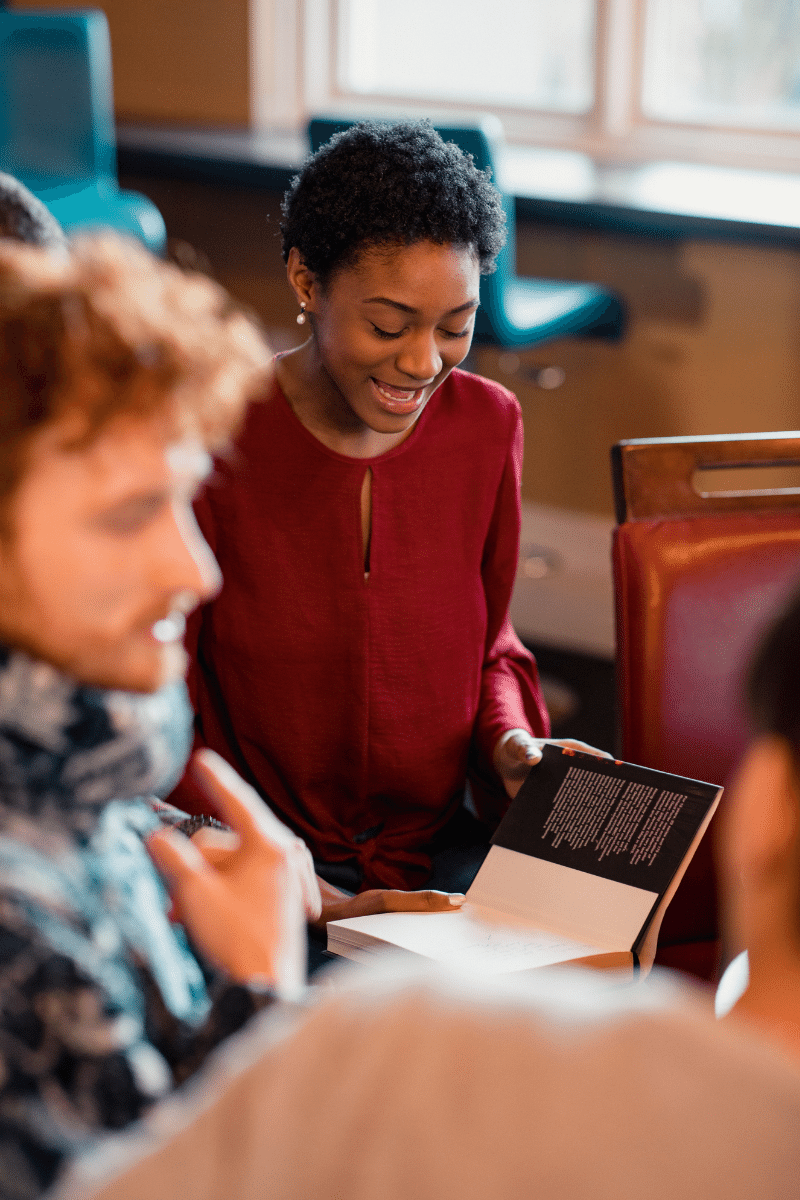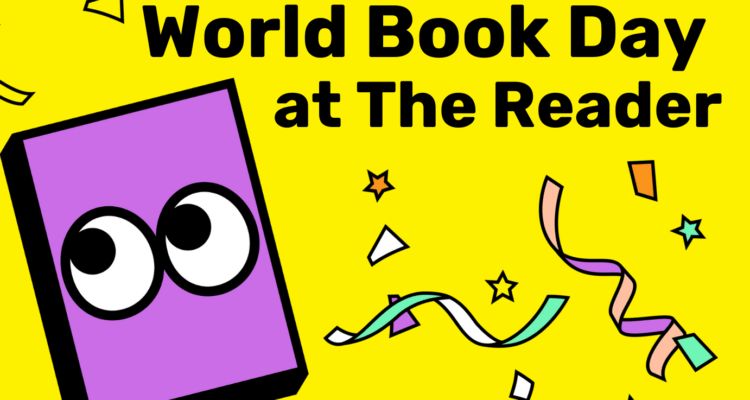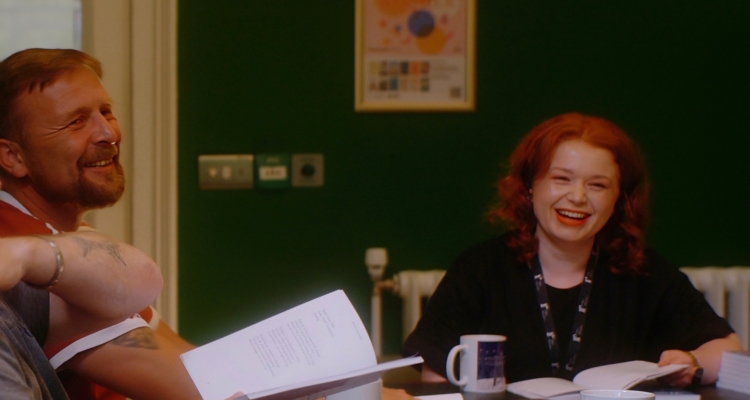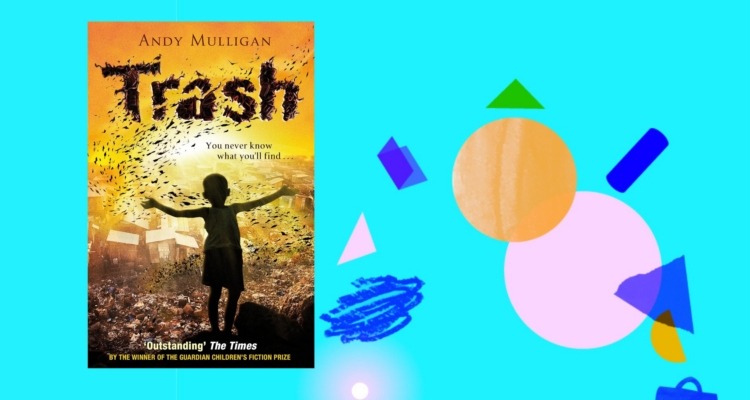“All you have to bring is yourself” – Tassie’s Reader Story
This Reader Story was collected and written by Fiona Magee.
Tassie was part of a Shared Reading group that took place over National Prison Radio – a joint project by The Reader and Prison Radio Association. Stories and poems were read aloud together and discussed and the episodes were broadcast into all prisons across the UK during lockdown.
When I was invited to do some Shared Reading, I was of the mind-set, ‘This is not going to be for me’. I worried about what I had to bring to the table. I’m quite a proud person and that fear of looking stupid, not saying the right thing, stuttering over my words – I thought I would really struggle with it all.

Anyway, I went to the group and I totally changed my mind! What I quickly realised was, all you have to bring is yourself: you could just be. I went into it thinking it was just a reading exercise, but it’s almost like a healing group. We all connected with each other, we were helping each other work things out in the texts and it felt like we were kind of helping each other through life as well. And because we knew how many people we were reaching, that was healing as well – we knew how relatable it was going to be to everyone else listening.
I was in a cell, the same as everyone listening to NPR, for three whole years, so I know exactly what it feels like to be sat there. Everybody that took part in these episodes, we have all been through our own set of struggles and adverse events, but we’ve also come out the other side. We were trying to show people that it’s OK to remember the journey, but let’s not get stuck in it – it doesn’t have to be your defining moment.
The stories and the poems spark a lot of discussion and we were bouncing ideas off each other. What shocked me the most was how much I actually had to say. Usually, my mind works better with things that have a definite answer, like numbers and Maths: with English and reading there are a hundred possibilities of what it could mean, and someone else might think something completely different to you – but what I actually found out was that that was the most fun part about it! That’s really good – it opens up your thought process.
You read the poem or the bit of the story, and initially it’s just words that you are trying to piece together and figure out the meaning, but as you’re reading and making sense of it, it sparks memories within you and then emotions follow.
We’re taking every word and seeing how it fits into our life and how we can use that: can we relate to that character, do we see similarities, do we see differences, if they (characters) don’t have the strength to do that, would we have the strength to do that? It allows us to look back on our life and share bits of our individual journeys and our stories.
The kind of conversations we had in Shared Reading, they don’t normally happen in everyday life – they were so honest. You don’t know what you’re going to be reading from one week to the next, so you’re almost forced to be truthful but not in a way that you feel like you’ve over-shared or it’s detrimental to you. It’s a relaxing, easy way.
There are so many times when you’re in custody, that you’re just going through the motions like a zombie, just to make it to the next day. What the texts do is bring you back to reality and remind you that after that period of incarceration – there is something else. And they make you almost feel better about your struggle, because you’re like, ‘That’s alright because that person (in the poem/story) is going through it too: we’re all human’.
Sometimes it felt almost like a gossiping session! The people on the page become like characters you are observing – “Ooo, why’s she speaking to him like that for? Ooo, they’re a bit judgmental, aren’t they?’ Even if you don’t like reading, everyone’s got something to say about other people – it’s human nature. You don’t have to understand absolutely everything, just say what you see and then you build off of that. It becomes easy, real, open, honest conversation.
Quite a few people that have been through the criminal justice system have lost out on a lot of ‘normal’ life experiences. Something as simple as a good experience with something like this – someone listening to them, and actually hearing them and valuing what they have to say - they are just things that don’t really happen very often for people that have gone through that.
I think that’s what really differed with Shared Reading – it gives you back that sense of – not childhood exactly – but innocence. To sit there and almost be a child again, it makes you vulnerable but not in a negative way.
The Reader on Friday afternoons was the one thing in my week that I absolutely couldn’t wait for! It meant so much to me. Sometimes, the things that you think aren’t really ‘for you’ and that you wouldn’t see yourself doing, are the best things.
Listen to The Reader's collaboration with National Prison Radio on Soundcloud
Share
Related Articles

World Book Day® and The Reader celebrate the fun of reading
National reading charity World Book Day is partnering with Shared Reading charity The Reader for a fun-filled day in…

James: ‘I am really grateful to have this reading group and Damien John Kelly House.’
James: ‘I am really grateful to have this reading group and Damien John Kelly House. I wish so many…

February’s Title Pick for Children: Trash by Andy Mulligan
Through our Bookshelf this year we are exploring the different places that people call home. From the very beginning…


